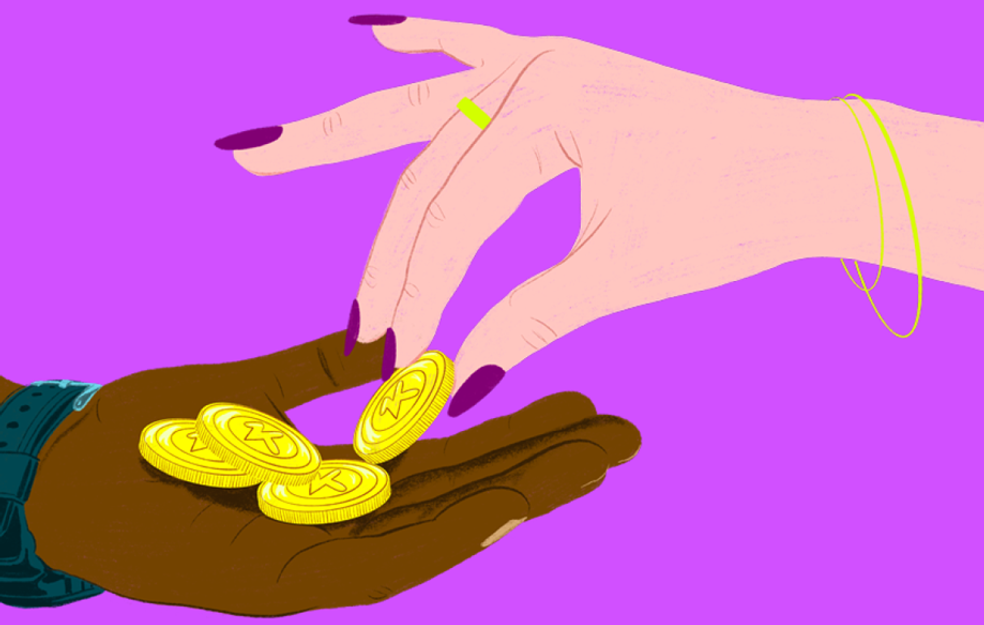Get an Interest-Free Cash Advance
Need money fast but don't want to deal with bank lineups and endless paperwork? You're not alone.
More Canadians than ever are turning to online lending for quick access to funds, whether it's for an emergency repair, unexpected medical bills, or consolidating debt.
1. KOHO
If you need help bridging a short-term gap, KOHO’s cash advance is built exactly for that.
With KOHO Cover, you can:
Get up to $250 as an instant cash advance (amount depends on eligibility)
Pay no interest on the advance
Avoid a credit check
Repay automatically once you add money or get paid
You subscribe to the Cover bundle for a low monthly fee, and in return you get the advance feature plus extras like a credit report, financial coaching, and priority support.
It’s designed to be a simpler, cheaper alternative to things like payday loans or expensive credit card cash advances.
Get a cash advance of up to $250
2. Nyble
Nyble allows users to access up to $250 for their balance protection insurance.
Cost Structure: Paid Membership
Cost: $11.99/month
Payment due date: 31 days following drawdown
3. Bree
Bree let's users access up to a $500 cash advance to prevent overdraft.
Cost Structure: Platform/Express Fee
Cost: $2.99 to $22.99
Payment due date: Next payday
4. Woveo
Users can access a cash advance of up to $250 with a premium plan.
Cost Structure: Paid Membership
Cost: $10/month per user
Payment due date: Monthly payments over 12 months
5. iCash
Users can get loans up to $1,500.
Cost Structure: Flat Fee
Cost: $14 per $100 borrowed
Payment due date: Next payday or up to the maximum 62-day period
6. Cash Money
Users can apply for Payday Loans of up to $1,500.
Cost Structure: Flat Fee
Cost: $14 per $100 borrowed
Payment due date: Next payday or about two weeks
7. PAY2DAY
PAY2DAY provides payday loans of up to $1,500.
Cost Structure: Flat Fee
Cost: $14 per $100 borrowed
Payment due date: Next payday
8. GoDay
Users can access payday loans of up to $1,500.
Cost Structure: Flat Fee
Cost: $14 per $100 borrowed
Payment due date: Next payday
9. Credit Club
Users can borrow payday loans of up to $1,500.
Cost Structure: Flat Fee
Cost: $14 per $100 borrowed
Payment due date: Next payday
10. Wagepay
New users can access pay advance of up to $1,500. This service is currently only available to Ontario & British Columbia residents.
Cost Structure: Flat Fee
Cost: $14 per $100 borrowed
Payment due date: Next payday or Postpone Repayment Feature*
*The postpone feature and the skip payment feature can not be used on the same advance.
What does "borrowing money online" actually mean?
Online borrowing simply means applying for and receiving a loan entirely through the internet. You fill out an application on a website or app, submit your documents digitally, and if approved, the money gets deposited directly into your bank account.
Online loans work just like traditional loans: you borrow a specific amount, agree to pay it back over a set period, and pay interest on the borrowed amount.
Types of online loans available in Canada:
Personal loans for any purpose
Lines of credit for ongoing access to funds
Payday loan alternatives for short-term needs
Business loans for entrepreneurs
Student loans for education expenses
Debt consolidation loans to combine multiple debts
Why people choose online lending
Speed: Traditional bank loans can take weeks to approve. Online lenders often provide decisions within minutes and funding within 1-2 business days.
Convenience: Apply anytime, anywhere. No need to take time off work or wait for bank hours.
Less stringent requirements: Many online lenders work with people who have fair or poor credit, offering options when traditional banks say no.
Competitive rates: Online lenders often have lower overhead costs than traditional banks, potentially offering better interest rates.
Transparent process: Most legitimate online lenders clearly display rates, fees, and terms upfront, making it easier to compare options.
Your path to safe online borrowing
Borrowing money online in Canada can be a legitimate, convenient solution when done thoughtfully. The key is doing your homework, choosing reputable lenders, and borrowing only what you need and can afford to repay.
Remember that any loan is a serious financial commitment that should improve your situation, not make it worse. Take time to understand your options, read all terms carefully, and have a clear plan for repayment before you borrow.

About the author
Quan works as a Junior SEO Specialist, helping websites grow through organic search. He loves the world of finance and investing. When he’s not working, he stays active at the gym, trains Muay Thai, plays soccer, and goes swimming.
Read more about this author